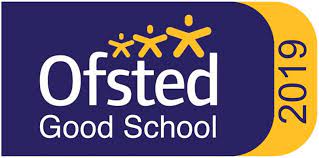- Home»
- Learning»
- Special Educational Needs 2023-2024»
- SEND Information Report»
- Who do I speak to if I have concerns about my child?»
Who do I speak to if I have concerns about my child?
Who do I speak to if I have concerns about my child?
Special Educational Needs Co-ordinator (SENDCo)
Who is the SENDCo?
The SENDCo at our school is Karen Wilson.
When is the SENDCo available and how do I contact her?
Ms Wilson has designated SENDCo time on Mondays from 8:45 until 15:15pm.
Should you wish to meet with or speak to Ms Wilson please contact her via the school office.
The John Harrox Primary School.
Broad Lane,
Moulton,
Lincolnshire.
PE12 6PN.
01406 - 370426
enquiries@johnharrox.lincs.sch.uk
What does the SENDCo do?
Ms Wilson is responsible for day to day running of anything relating to 'Special Educational Needs and Disabilities' (SEND) within the school; the Headteacher, Mr D Pilsworth maintains ultimate responsibility. Mrs I Slator is named as the SEND governor; part of the role is to meet with Ms Wilson and to have an overview of SEND in the school. This makes sure that any special educational needs are identified and that support is put in place to help them. Other duties include:
- Supporting staff
- Supporting parents/carers
- Making referrals to outside agencies
- Linking with outside agencies, gathering advice and making sure that it is put in place
- Providing the correct help and equipment for pupils
- Linking with other schools to support transitions
- Making requests for statutory assessment
How can the SENDCo help me?
Ms Wilson will be able to offer advice about how to identify if your pupil has any special educational needs and what support they might need. She can make direct referrals to many outside agencies and lead multi-agency meetings to make sure that your child's needs are met in school. She can also provide advice about any family needs and suggest who can help.
What experience and qualifications does the SENDCo have?
Ms Wilson is a qualified teacher and has completed the training for the National SENDCo award. She has worked at The John Harrox Primary School for over 18 years and has worked closely with and in the SEND department for over 10 years.
Ms Wilson has attended training and courses to enable her to support children with a SEND including Dyslexia; Dyscalculia; Dyspraxia and Autistic Spectrum Condition. She has also undertaken training in counselling; Foetal Alcohol Syndrome and attachment disorders.
Ms Wilson has completed Makaton sign language to Level 3 and achieved the Level 3 Elklan Speech and Language Support for Verbal Children with Autistic Spectrum Disorder.
As part of her role Ms Wilson has been trained to administer a number of diagnostic and performance tests including Boxall and Pearson Dyslexia screening tests.
How do I get a diagnosis for my child?
I think my child has special educational needs, how do I get a diagnosis for my child?
Pupils will only receive a diagnosis if they have a specific learning difficulty such as as Dyslexia, or have a medical need. Pupils do not receive a 'diagnosis' of special educational needs. The SENDCo and Class Teacher will identify that a pupil has a difficulty which is preventing them from learning in the same way as their peers and will place them onto our SEND Register. Any diagnosis of a condition will be made by the medical profession and cannot be made by school or its staff.
If you are concerned that your child has a specific difficulty such as ADHD or Autism, the SENDCo can make a direct referral to the Community Paediatrician. If the referral is accepted, you will receive an appointment with a paediatrician, who will give you further information and an assessment may begin.
If you are concerned that your child has a learning difficulty such as Dyslexia initially Ms Wilson will screen your child using the Pearson Dyslexia Screening Test Junior/ Early, or a GL assessment, this gives an ‘at risk’ quotient. This does not constitute a diagnosis of dyslexia.The SENDCo can make a referral to a Specialist Teacher from a team called the 'Specialist Teaching Team' (STT). A Specialist Teacher works at our school for half a day every three weeks. She can identify if a pupil has difficulties consistent with Dyslexia and other learning difficulties and then provide advice about how best to support their needs.
If you are concerned that your child has a speech and language difficulty, the SENCo can make a referral to the 'Speech and Language Therapy Service' (SALT). A therapist may then assess and identify if a pupil has a specific speech and/or language difficulty and provide advice about how best to support their needs.
How long does a diagnosis/referral take?
Referral time can vary depending upon the agency involved. Referrals to the NHS (Community Paediatrics and Speech and Language Therapy Service) take considerably longer, on average it can take between three to four months to receive an appointment. Not all pupils will receive a diagnosis and/or decision. Where diagnoses are made, this can take a considerable time depending upon the individual. In many cases, a diagnosis follows several appointments, which could take more than a year.
Referrals to the Specialist Teacher are made within the school and the time taken is dependent on how many referrals have been made at that point. Where the Specialist Teacher identifies a specific difficulty this will take only a few weeks once the assessment has been completed.
What happens once a diagnosis has been made?
At The John Harrox Primary School we do not wait until a diagnosis has been made to put support in place, since this can be a very long process. If it is very clear that a pupil has a difficulty and is struggling to learn, we will do everything that we can to help them.
If a diagnosis is made, the relevant outside agencies provide strategies on how best to help the pupil. This advice will be identified on the pupil's Individual Education Plan (IEP) and shared with parents/ carers and/or discussed at an IEP meeting.
How can I access support for my child and family?
If you have any concerns about your child or family's needs then you can speak with the SENDCo your child’s Class Teacher or the Headteacher.
The SENDCo will be able to advise you about what support is available both within the school and through outside agencies. In many cases the SENDCo can make a direct referral to the professionals that you need in order to get advice or help.
Will every member of staff working with my child be aware of their needs?
All staff working with your child would be made aware of their special educational needs and/or disability (SEND). This ensures that all staff can offer the help and support that your child needs.
What do I need to do to support my child and the school, and how will I be involved?
You will be involved in supporting your child from the outset. IEPs are reviewed and updated 3 times a year and these are shared with parents/ carers. You will have the opportunity to contribute at these meetings. Outside agencies may suggest targets for your child and these would be shared with you.
What do staff do if they have a concern about my child?
If any member of staff has a concern about your child, and thinks that they are finding it difficult to learn compared with other children in their class, then they will discuss their concerns with the SENDCo. If the conclusion is that your child may have special educational needs, either the class teacher or SENDCo will discuss these concerns with you and together you will decide the best course of action. This will normally be to place your child on our Special Educational Needs Register and to provide extra support to help them
How will my child's progress be tracked and how will the school keep me informed about their progress and achievements?
The school tracks all pupils’ progress and attainment very closely and reports to the Headteacher and Governors at least termly. Pupil progress is discussed at Pupil Progress Meetings held every term with the Key Stage Leaders, Deputy Headteacher and the Headteacher so that any concerns may be addressed.
Your child's progress and achievements will be shared with you at Parent Consultations and during any review meetings that may be held. Discussions will be held around their attainment, academic progress and progress against the targets that have been set on their Individual Education Plans (IEP).
If your child is not making progress, then we will discuss changing the support that they are receiving or involving new outside agencies to offer advice and support.
A copy of any report from outside agencies will be provided to parents.




